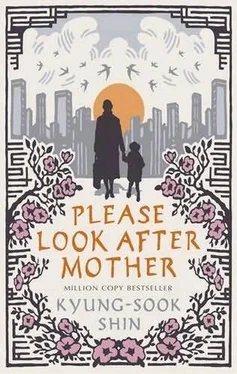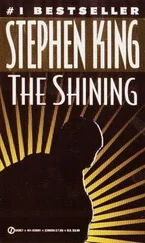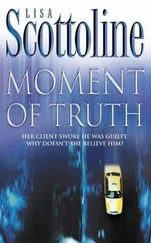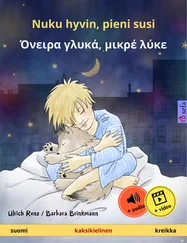Kyung-sook Shin - Please Look After Mom
Здесь есть возможность читать онлайн «Kyung-sook Shin - Please Look After Mom» весь текст электронной книги совершенно бесплатно (целиком полную версию без сокращений). В некоторых случаях можно слушать аудио, скачать через торрент в формате fb2 и присутствует краткое содержание. Жанр: Современная проза, на английском языке. Описание произведения, (предисловие) а так же отзывы посетителей доступны на портале библиотеки ЛибКат.
- Название:Please Look After Mom
- Автор:
- Жанр:
- Год:неизвестен
- ISBN:нет данных
- Рейтинг книги:4.5 / 5. Голосов: 2
-
Избранное:Добавить в избранное
- Отзывы:
-
Ваша оценка:
- 100
- 1
- 2
- 3
- 4
- 5
Please Look After Mom: краткое содержание, описание и аннотация
Предлагаем к чтению аннотацию, описание, краткое содержание или предисловие (зависит от того, что написал сам автор книги «Please Look After Mom»). Если вы не нашли необходимую информацию о книге — напишите в комментариях, мы постараемся отыскать её.
Told through the piercing voices and urgent perspectives of a daughter, son, husband, and mother, Please Look After Mom is at once an authentic picture of contemporary life in Korea and a universal story of family love.
You will never think of your mother the same way again after you read this book.
Please Look After Mom — читать онлайн бесплатно полную книгу (весь текст) целиком
Ниже представлен текст книги, разбитый по страницам. Система сохранения места последней прочитанной страницы, позволяет с удобством читать онлайн бесплатно книгу «Please Look After Mom», без необходимости каждый раз заново искать на чём Вы остановились. Поставьте закладку, и сможете в любой момент перейти на страницу, на которой закончили чтение.
Интервал:
Закладка:
The entire city of Rome is literally a historical site. All the negative things you heard about Rome-there’s a transit strike every other day, and they don’t even apologize to the passengers; people will grab your arm and steal your watch right under your nose; the streets are blighted with graffiti and garbage-you didn’t care about. You just observed everything passively, although you were ripped off by a cab driver, and someone grabbed the sunglasses that you had just placed next to you at a café. You went to various ruins by yourself, during the three days when Yu-bin was at his conference. To the Foro Romano, the Colosseum, the Baths of Caracalla, the Catacombs. You stood listlessly in the spacious ruins of the large city. Everything about Rome symbolized civilization. But although traces of the past were spread out in front of you wherever you went, you didn’t keep anything in your heart.
Now you are looking at the statues of saints in the round piazza, but your eyes do not pause anywhere. The guide explains that Vatican City is not only a country in the secular world, but also God’s country; that the territory is only forty-four hectares but an independent state with its own currency and stamps. You aren’t listening to the guide’s explanations. Your eyes jump from person to person. Even if there are only a few people around, your eyes leap among them, unsettled, as you wonder, Is Mom here somewhere? There’s no way Mom would be among Western tourists, but even now your eyes don’t know how to settle on a single object. Your eyes meet the eyes of the guide, who’d said that he came here seven years ago to study choral music. Embarrassed that you’re not even wearing the earphones, you pull them up and plug them into your ears. “Vatican City is the world’s smallest country. But thirty thousand people visit it in a single day.” As you hear the guide’s commentary transmitted to your ears, you bite the inside of your lip. Mom’s words come to you in a flash. When was that? Mom asked you what the smallest country in the world was. She asked you to get her a rosary made of rosewood if you ever went to that country. The smallest country in the world. You suddenly pay attention. This country? This Vatican City?
With your earphones still on, you wander away from your group seated at the foot of the marble stairs, away from the sun, and go inside the museum alone. A rosary made of rosewood. You walk by the majestic ceiling art and a row of sculptures whose end you can’t see. There has to be a gift shop somewhere, which might have a rosewood rosary for sale. As you weave quickly between people in your quest to find this rosewood rosary, you pause at the entrance to the Sistine Chapel. Michelangelo hung from the beams of that high ceiling every day for four years to work on the fresco? The sheer size of the fresco overwhelms you, so different from the way it looks in books. Yes, it would have been strange if he didn’t experience physical problems after finishing this project. The artist’s pain and passion gush down like water onto your face as you stand under the Creation of Adam . Your instincts are right; when you leave the Sistine Chapel, you immediately see a gift shop and bookstore. Nuns in white are standing behind display cases. Your eyes meet those of one particular nun.
“Are you Korean?” Korean comes out of the Sister’s mouth.
“Yes.”
“I came from Korea, too. You’re the first Korean I’ve met since I was sent here. I arrived four days ago.” The Sister smiles.
“Do you have rose rosaries?”
“Rose rosaries?”
“Rosaries made of rosewood?”
“Ah.” The Sister takes you to one part of the display case. “Do you mean this?”
You open the rosary case the Sister hands you. The scent of roses bursts out of the airtight rosary case. Did Mom know this smell?
“It was blessed by a priest this morning.”
Is this the rosewood rosary Mom talked about?
“Is this the only place you can get this rosary?”
“No, you can get it anywhere. But since it’s the Vatican, there is more meaning to it if it comes from here.”
You gaze at the sticker on the rosary case: fifteen euros. Your hands shake as they give the money to the nun. Still holding the rosary case, the nun asks if it’s a gift. Gift? Could I give this to Mom? Could I? When you nod, the nun takes from the inside of the display case a white envelope with the image of the Pietà printed on it, puts the case inside, and seals it with a sticker.
Holding the rosewood rosary in your hand, you start walking toward St. Peter’s Basilica. From the entrance, you look inside. Light cascades from the dome above the majestic bronze ciborium. Angels float among the white clouds in the ceiling fresco. You set one foot in the basilica and look beyond the large, lacquered halo. As you walk down the center aisle toward it, your feet pause. Something pulls at you, intensely. What is it? You wade through the crowd, toward the thing that is pulling at you like a magnet. You look up to see what people are looking at. The Pietà . The Holy Mother holding her dead son is ensconced behind bulletproof glass. As if you are being dragged forward, you push through the crowd to the front. As soon as you see the graceful image of the Holy Mother holding the body of her son, who had just breathed his last breath, you feel as though you are frozen in that spot. Is that marble? It seems that her dead son still has some heat in his body. The Holy Mother’s eyes are filled with pain, as her head tilts down at her son’s body laid across her lap. Even though death has already touched them, their bodies seem real-as if a poking finger would dent their flesh. The woman who was denied her motherhood still gave her lap to her son’s body. They are vivid, as if alive. You feel someone brushing against your back, so you look swiftly behind you. It’s as if Mom is standing behind you.
You realize that you habitually thought of Mom when something in your life was not going well, because when you thought of her it was as though something got back on track, and you felt re-energized. You still had the habit of calling Mom on the phone even after she went missing. So many days, you were about to call Mom but then stood there, numbly. You place the rosewood rosary in front of the Pietà and kneel. It’s as if the Holy Mother’s hand, cradling her dead son under his armpit, is moving. It’s hard for you to look at the Holy Mother’s anguish as she holds her son, who has reached death after enduring pain. You don’t hear anything, and the light from the ceiling has disappeared. The cathedral of the smallest country in the world falls into deep silence. The cut in the tender skin on the inside of your lip keeps bleeding. You swallow the blood that pools in your mouth and manage to raise your head to look up at the Holy Mother. Your palms reach out automatically to touch the bulletproof glass. If you can, you want to close the Holy Mother’s sorrowful eyes for her. You can sense Mom’s scent vividly, as if you two had fallen asleep under the same blanket last night and you embraced her when you woke up this morning.
One winter, Mom wrapped her rough hands around your young, cold ones and took you to the furnace in the kitchen. “Oh my, your hands are sheets of ice!” You smelled the unique fragrance of Mom, who huddled around you before the fire, rubbing and rubbing your hands to warm them.
You feel the Holy Mother’s fingers, which are wrapped around her dead son’s body, stretching out and stroking your cheek. You remain on your knees in front of the Holy Mother, who barely manages to raise her son’s hands, clearly marked by nail-inflicted wounds, until you can no longer hear footsteps in the basilica. At one point you open your eyes. You stare at the Holy Mother’s lips, beneath her eyes, which are immersed in sorrow. Her lips are closed firmly, with a grace that nobody could disturb. Deep sighs escape your lips. The Holy Mother’s dainty lips have moved beyond the sorrow in her eyes toward compassion. You look at her dead son again. The son’s arms and legs are splayed peacefully across his mother’s knees. She is soothing him even in death. If you’d told anyone in the family that you were going on a trip, they would have taken that to mean that you had given up on finding Mom. Since you had no way to convince them otherwise, you came to Rome without telling anyone. Did you come here to see the Pietà ? When Yu-bin suggested that you join him in Italy, you might have unconsciously thought of this sculpture. Perhaps you wanted to pray in this place, pray that you could see for one last time the woman who lived in a small country attached to the edge of the vast Asian continent, to find her, and this is why you came here. Then again, maybe that wasn’t it. Maybe you already understood that Mom didn’t exist in this world anymore. Maybe you came here because you wanted to plead: Please don’t forget Mom, please take pity on Mom. But now that you see the statue on the other side of the glass, sitting on a pedestal, embracing with her frail arms all of mankind’s sorrow since the Creation, you can’t say anything. You stare at the Holy Mother’s lips intently. You close your eyes, back away, and leave that place. A line of priests passes, probably on their way to celebrate mass. You walk out to the entrance of the basilica and look down, dazed, at the piazza surrounded by long cloisters and enshrined in brilliant light. And only then do the words you couldn’t say in front of the statue leak out from between your lips.
Читать дальшеИнтервал:
Закладка:
Похожие книги на «Please Look After Mom»
Представляем Вашему вниманию похожие книги на «Please Look After Mom» списком для выбора. Мы отобрали схожую по названию и смыслу литературу в надежде предоставить читателям больше вариантов отыскать новые, интересные, ещё непрочитанные произведения.
Обсуждение, отзывы о книге «Please Look After Mom» и просто собственные мнения читателей. Оставьте ваши комментарии, напишите, что Вы думаете о произведении, его смысле или главных героях. Укажите что конкретно понравилось, а что нет, и почему Вы так считаете.











